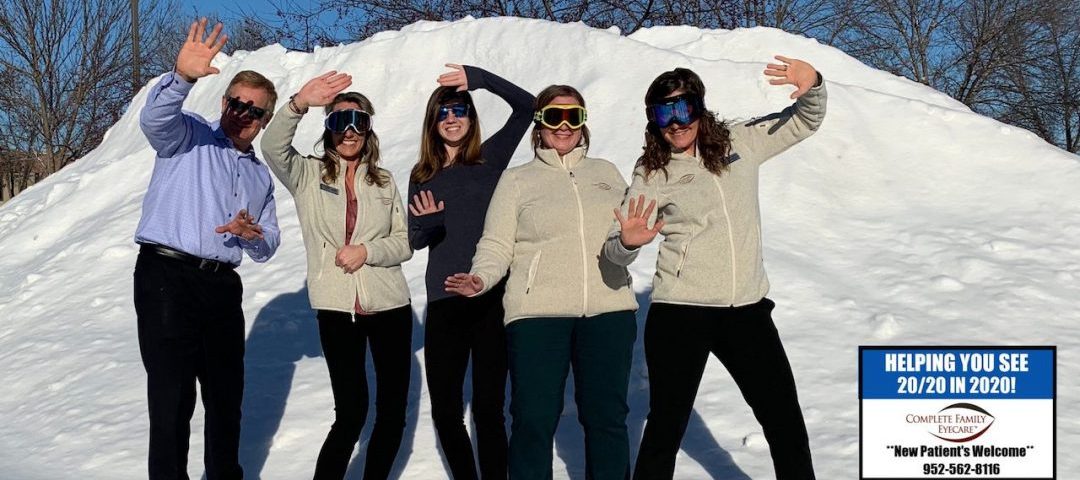
Eye doctors are terrified of “B word” (blindness) and we don’t use it lightly as it implies complete,permanent vision loss that gives us nightmares. However, urban legend inventors, those trying to sellyou a news story or a product or just trying to scare you, often throw the B word around very easily andsometimes inappropriately. “Snow Blindness” could be considered an example of thismisinterpretation.
ULTRAVIOLET EXPOSURE KERATITIS (SNOW B WORD), HOW IT HAPPENS….
Your cornea is the clear front part of your eye which does most of the light bending to properly focus animage on your retina. The cornea is simply transparent skin and is equally susceptible to ultraviolet (UV)damage as the skin on the rest of the body. The cool fact about the cornea though is that it is constantlybathed in pleasant tears and your eyelids and eyelashes cover it and give shade with each blink.UV light from the sun can cause inflammation and damage to any skin tissue including the cornea whichmay result in UV exposure keratitis (inflamed cornea) or simply put, corneal sunburn. Snow is reflectiveof UV light and this reflection can cause excessive UV exposure resulting in keratitis and loss of thesuperficial skin cells of the cornea. The cornea is highly innervated, and the lost skin cells leave exposednerve endings making them quite unhappy and will let you know by sending you a PAIN signal. Visionmay also be temporarily blurred but vision will return when the cornea heals. Keratitis can also becaused by several other factors such as improper contact lens use, foreign substances in the eye,infections, etc.
UV keratitis can also be caused by other types of UV exposure. A long day on the lake without wearingyour sunglasses or UV exposure from tanning bed light can also cause keratitis. Another form of thiscondition is welder’s or arc flash which can be extremely painful.
HOW TO TREAT UV KERATITIS?
Prevent infection, lubricate and patience! The cornea is very resilient tissue and heals much faster thanother skin/epithelium on your body. However, the first 24 to 48 hours will be rough. I usually prescribepreservative free lubrication drops (not bottled drops that contain preservatives which will delay cornealhealing), mild antibiotic drops to prevention infection, and instructions to go to bed. OTC pain relieversand cool compresses can also be helpful with the pain. Remove contact lenses immediately if you haveany symptoms of keratitis.
HOW TO PREVENT UV KERATITIS?
Although I have never seen a case of UV keratitis causing the B word, repeated case of keratitis couldlead to corneal scarring and potential vision loss. It is obviously important to protect your eyes fromexcessive UV exposure which can also cause dry eye, early cataracts and skin cancer. Wearing quality,certified UV protective ski googles and sunglasses are your first line of defense in preventing UV keratitis. Keeping your corneas well lubricated during times of UV exposure can also be helpful inpreventing keratitis and several new contact lens options also have UV protection.
Best wishes for happy corneas!
Dr. Steve

